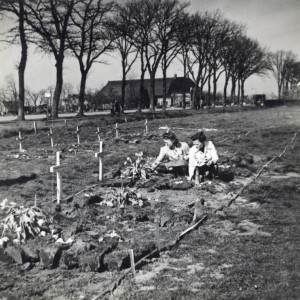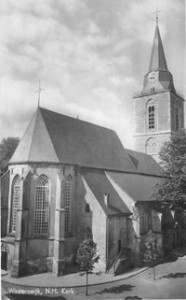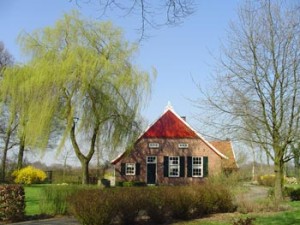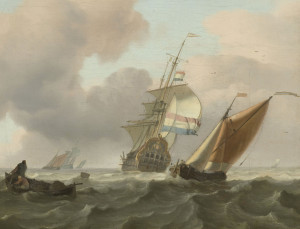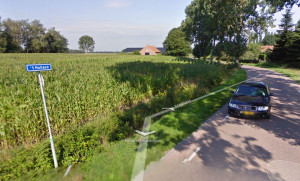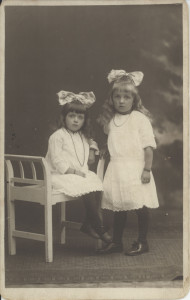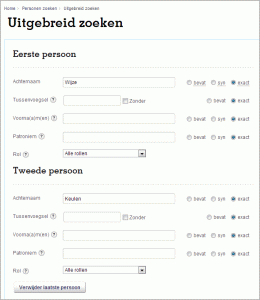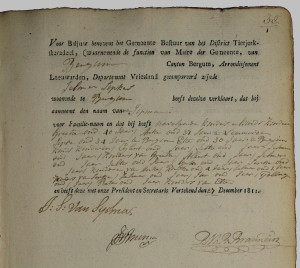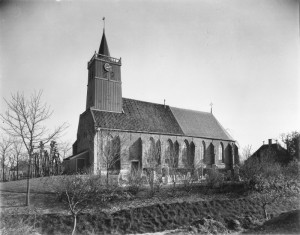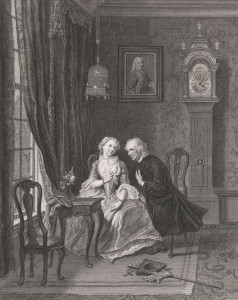Several people have asked me how they can find out how their ancestors died. Unfortunately, records that list cause of death are routinely destroyed, so most often it will not be possible to find the cause of death. … [Read more...]
Archives for November 2013
Quick tip: find transcriptions of Achterhoek sources on Genealogiedomein
Are your ancestors originally from the eastern part of Gelderland known as the Achterhoek? The website Genealogiedomein has hundreds of (free) transcriptions in PDF-format. Most of the transcribed records are church records (baptisms, marriages and burials) from before 1811, but there is also a growing number of indexes of civil registration records (birth, marriages and deaths) after 1811. Just click the name of the municipality in the list on the left and then select the category. Some handy … [Read more...]
Dutch term: boerderij
A boerderij is a farm. Sometimes, you will find boerderij doende (doing farm) as an occupation, which means that the person was a farmer. Most farmers were tenants who did not own their farms. Some farms are very old; not necessarily the buildings, but the agricultural business at that location. The buildings got renewed, the property got sold, tenants moved in an out, but a farm may have existed on that location for hundreds of years, perhaps even more than a thousand. Tracing the … [Read more...]
Find your ancestors by understanding how records are created
Searching for records using Google or Ancestry will only get you so far. You will just find records that have already been indexed and put online. If searching does not give you the records you need to answer your research question, try to think like an archivist to understand what other records may exist. … [Read more...]
Was your ancestor born in Reusel-De Mierden, Noord-Brabant? Guess again!
When I look at online trees, especially on Ancestry.com, I often see "Reusel, Reusel-de Mierden, Noord-Brabant, Netherlands" listed as the place of birth. At first I was puzzled how all these people with names that are typical for Friesland, Groningen or Gelderland would have children in a village on the other side of the country. There was obviously something wrong there. But then I started using FamilyTreeMaker and tried to resolve some place names. Guess what? "Holland" resolves to "Reusel, … [Read more...]
Quick tip: don’t expect any early photographs
Photography took off later in the Netherlands than in the UK or the US. Most people don't have any pictures of their family that were taken before 1910/1920. If you do come across an early photograph, be very careful when dating it. A photo that looks like it would have been taken in the 1880s in the US, may well be from the 1900s in the Netherlands, since the technology was so far behind. … [Read more...]
Dutch term: Uitgebreid zoeken
The words uitgebreid zoeken mean "advanced search" (literally: elaborate search). You will often find the term on websites with genealogical databases where the "uitgebreid zoeken" link will take you to a search form with more options to formulate your query. Beware that most search engines only find exact matches, so don't fill out too much information. … [Read more...]
Name taking records
The French occupation from 1795-1813 introduced many new types of administration, including the civil registration. To properly record people, it was necessary that they all had a last name. In 1811 and 1813, Napoleon decreed that everybody had to register their last name. After the French occupation ended, the Dutch government decided to keep the obligated last name. In 1825 they required that everybody who had not registered his name yet should do so. You can find information about … [Read more...]
Quick tip: Find church records at the archives, not at the churches
When the civil registration was introduced in 1811 or slightly earlier, the government required that all churches turn in their baptismal, marriage and burial records. These church records would become the foundation of the civil registration, where government officials could determine when a person was born, married and died. … [Read more...]
Dutch term: weduwnaar
The word weduwnaar means widower. In most marriage records, even the early ones, the fact that groom is a widower will be mentioned. If you're lucky, the name of the previous spouse is mentioned too, but that has only been required since the civil registration (1811 or slightly earlier). … [Read more...]
